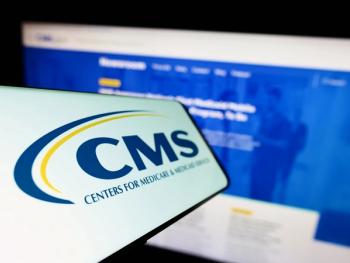
Managed Care Experts Agree on Gene Therapy’s Clinical Benefits for Inherited Blood Disorders But See Hurdles for Coverage
In-depth interviews and an online survey found support for gene therapy as a treatment for inherited blood disorders, but also several obstacles that must be addressed.
Genetic blood disorders such as hemophilia, sickle cell disease and β-thalassemia are prime candidates for gene therapy. But questions about their long-term effectiveness and astronomical initial costs have tempered excitement for their potential to transform lives..
With the field of gene therapy moving rapidly, Michelle Rice, founder and CEO of Michelle Rice & Associates LLC, a consultancy based in Indianapolis, Indiana, and colleagues set out to expand on the 2022 Academy of Managed Care Pharmacy (AMCP) Market Insights on managing inherited blood disorders. They sought to identify additional managed care and clinician views on the clinical appropriateness of gene therapy, potential outcomes from value-based contracting, and the challenges patients face with insurance coverage.
They conducted six in-depth interviews with managed care experts overseeing more than 77 million individuals and also administered an online survey of hemophilia treatment centers in 18 states serving 13,000 patients. They presented their findings at the AMCP Nexus meeting in Las Vegas earlier this month and they were published as an abstract in supplement to the Journal of Managed Care + Specialty Pharmacy.
Results were specific to the three diseases. For hemophilia, the consensus among managed care professionals is that gene therapy is clinically appropriate and “coverage will likely align” with FDA approvals, according to the abstract. Expected value-based contracting outcomes include a reduction in regular clotting factor infusions and bleed frequency.
For sickle cell disease, gene therapy “is seen as suitable for all affected individuals interested in gene therapy.”
In severe β-thalassemia, the authors wrote, gene therapy is appropriate for individuals requiring frequent transfusions or experiencing complications, “aiming to reduce transfusion needs and enhance hemoglobin production.”
Results from the survey of 24 hemophilia treatment centers suggest that treatment customization is necessary to meet clinical and insurance coverage requirements. Some 88% of respondents reported difficulties with insurance approval processes.
Other major challenges include access to preferred health care providers, mental health services and pain management, each reported by 41% of respondents. The survey also found that 71% of participants felt that new therapies primarily improve patient outcomes, but 86% pointed to deficiency in innovative reimbursement models, with 75% “concerned about payer readiness to support cell and gene therapies.”
The authors concluded that obstacles to widespread adoption — insurance barriers, access to specialized care and reimbursement models — “must be addressed to fully leverage these advanced treatments.”
Newsletter
Get the latest industry news, event updates, and more from Managed healthcare Executive.

























